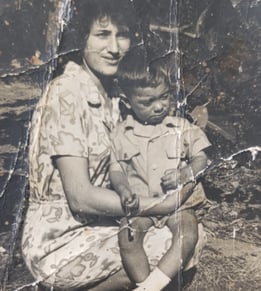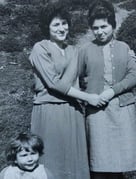The Price of an Unwanted Marriage – Appendicitis
The Price of an Unwanted Marriage – Appendicitis
The incident dates back about seventy years. Saadet Çolak was born in 1944 in the Sarıyer district of Istanbul. She is the first child in a traditional family of five, with three siblings. Growing up in a strict household, Ms. Olgun describes her mother as a stern and angry woman, while her father was calm and loving. “My father was very fond of us, and I had a very good relationship with him. But my mother was prone to violence. When things didn’t go her way, her attitude would become harsh,” she says.




While the wedding preparations continued, one night a news report on the radio changed her life. It explained that swallowing lemon seeds could cause appendicitis. “At that moment, an idea came to me, it was like a light bulb went off in my head,” Saadet says. Secretly swallowing the seeds of every lemon she found in her daily life, she hoped to trigger an appendicitis attack and thus escape the marriage. “I prayed every night; it was my only way out.”


When the wedding dress arrived at home, she could no longer hold back and started to cry, but her mother scolded her. Her father remained silent, unable to confront her mother. No one in the family noticed her swallowing lemon seeds because no one imagined she would take such a drastic measure.
Then the awaited moment came. Saadet began to writhe in unbearable pain. The pain was so intense that she collapsed to the floor. Although the family initially thought she was exaggerating, they soon realized the seriousness of her condition and rushed her to the hospital. “My body was burning with pain, but the tears in my eyes were from the happiness of succeeding,” she recalls. She was immediately taken into surgery, and her appendix was removed.
She was immediately taken into surgery, diagnosed with a burst appendix, and her appendix was urgently removed. Saadet Olgun recalled that she had her first surgery when she was only 16 years old. Life was not easy after that day; she had to go under the knife many times. She endured great pain not only physically but also emotionally. She spoke about battling various illnesses and how the hardships had worn her down both physically and mentally.
After the surgery, Saadet’s brother-in-law had a serious conversation with her mother, Hayrunisa Hanım. “You can’t force your daughter to marry. She will take her own life. This marriage will not happen. Isn’t it a shame? The poor girl will kill herself,” he said. These words became one of the turning points in Saadet’s life. Against her mother’s strict and oppressive attitude, her brother-in-law’s words sparked the first hope inside her. Saadet said that her mother was deeply affected by this conversation and softened her stance, even if only temporarily. She explained that her father was also upset with her mother and that the rest of the family pressured her mother to protect Saadet’s life.
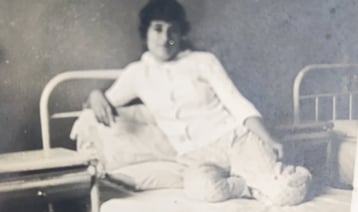

In the end, Saadet was saved from being forced into marriage. She expressed those difficult times like this: “I never wanted to get married. I was just a child then. Now I have grandchildren and children, but if I could go back, I wouldn’t marry my late husband again. Marriage was not for me; it hurt me a lot and wore me down.”
What saved Saadet from being married off as a child was swallowing lemon seeds. This small but brave resistance changed her life. Still, life led her down a different path; in her twenties, she married a man more suitable for her age and dreams.
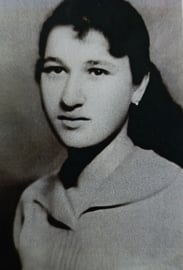

Ms. Çolak recounts the forced marriage process: “When the suitor came, I did not want to see them. The man I was supposed to marry was around 28-30 years old, and I was only 16, practically a child. They liked me and the wedding preparations began.” Despite all her efforts, she could not convince her mother to change her mind. In despair, one night she cut her hair close to the roots: “My hair was down to my waist. I thought that by cutting it short, maybe they would give up on the marriage. But it didn’t work.”
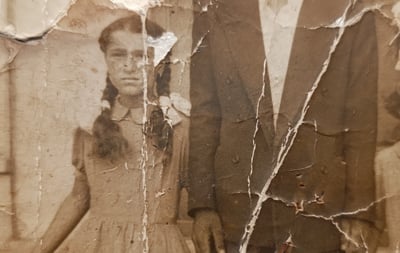

Her childhood was spent in a warm and friendly neighborhood in Istanbul, where most of the neighbors were Armenians and Greeks. However, during the 1960s, financial difficulties and the restrictions of life increased the pressure within the family. Her mother, Hayrunisa Hanım, wanted to marry Saadet off when she was only 16 years old. “I was very upset when my mother wanted to marry me off at such an early age,” Saadet recalls. Her mother had lost her own parents at the age of 12 and had to bear the burdens of life early on, which contributed to her cold and strict character.
